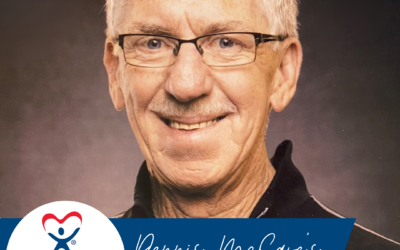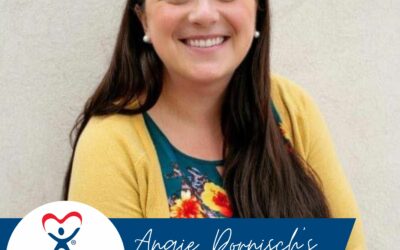I recently spoke with Marti Liechty and Zach Duhon, two students finishing up their first year of law school at the University of Montana. In addition to their status as law students, Marti and Zach share another common endeavor, which was the subject of our conversation: They both volunteer their time as Court Appointed Special Advocates (CASAs) for children in foster care.

Marti Liechty & Zach Duhon
I wanted to learn more about their motivations, as two young people – and members of Generation Y – to get involved with the CASA program at the advent of their careers. Local CASA organizations are often underrepresented in this demographic, and I hoped their experience might provide insight and inspiration for others in their 20s and 30s to consider giving their time to children in need.
Marti started as a CASA during her final year of undergraduate studies at the University of Montana. After enrolling in a course on nonprofit administration, she learned the class required each student to get involved with a nonprofit organization. Marti looked into CASA of Missoula and saw the upcoming training lined up perfectly with her course.
That was nearly three years ago.
Zach first became acquainted with CASA when his company hosted a charity day, in which a number of organizations came to recruit new volunteers, including the local CASA program. Now, two years later, Zach recently finished his second case.
From his perspective, Zach believes that one of the most important aspects of being a CASA, in contrast to many other volunteer roles, is an unconditional commitment to the child. “You have to be dedicated,” he said.
“Social workers change, lawyers come and go,” he said. “The CASA is the constant.”
However, Marti stressed that being a CASA is not as time-consuming as some young people might fear. She was surprised after recently using the organization’s case management software to add up the total time she had spent on her cases, and found it was approximately 100 hours over the three years. “What, one hour, two hours per week?” she said.
Even though being a CASA hasn’t required very much time, “it’s taken up a big piece of my heart and life,” she said.
Marti feels that young people bring a certain perspective that can be a unique asset to their advocacy. “We’re so raw and innocent, and not yet tainted by the system,” she said. “We can very clearly say, ‘I think this is right, I think this is wrong. I saw this happen, and here’s why it should matter.’”
Marti is the oldest of four siblings, a station in life where she has often felt inclined to protect, pave the way, and lead by example. As a young person at the start of her career, Marti believes the role of a CASA can be “an important outlet,” for those seeking to make a difference and have a meaningful role in their community. She believes becoming a CASA provides an opportunity for “expressing those feelings in a healthy way and helping the process.”
Zach concurred that young people can thrive as CASAs. “There’s definitely something for most to get out of CASA,” he said.
Marti expressed that young people are often driven to stand up for what they believe. “They want to be heard, to stand out. They have an inclination to be rebellious, to say how they feel. They look for an outlet to be heard.”
She added, “CASA is a great way to be heard.”
Zach noted that the work of a Court Appointed Special Advocate often requires fluency with technology, something younger generations have an advantage with. “Young people make great CASAs, because young people are versatile and great learners,” he said.
Marti knew from an early age that she wanted to attend law school and become an attorney. However, her time with CASA has shaped her vision for her career. While she originally thought she would be happiest at a big law firm, she no longer believes that is where her talents would be best served. “CASA has opened my heart way more to public service,” she said.
Prior to starting as a CASA, Zach envisioned getting his master’s degree in social work. His work as a CASA encouraged him to consider law school. Watching the work of the county attorneys on abuse and neglect cases was a particular inspiration. “They’re very accommodating,” he said. “But very busy.”
Marti expressed that she has learned a lot in her first three years as a CASA. “It taught me to show people a lot of grace,” she said. “Everybody in the system is overworked. Every social worker, every attorney.”
“You have to respect that they haven’t talked to their client that week, or they might get certain facts mixed up,” she said.
Marti noted this is where the role of the CASA comes in. “I get to be the person who is uber prepared for those moments,” she said. “I get to help the other players.”
Zach concurred that this is where the CASA can shine. “The CASA is the only one who is there exclusively for the child,” he said.
He recalled attending a court hearing for his case, where there was much discussion among the social workers and attorneys regarding peripheral issues mostly unrelated to the children. When the judge asked for the CASA’s input, Zach brought up the issue he believed others had missed – “This kid’s got to go to the dentist!”
One of the challenges Marti had to grapple with early on as a CASA was the realization that cases are often very nuanced, and not all problems have an obvious solution. “Young people are so full of hope,” she said, “thinking, if we just really try, it’s going to work.” But it is not the CASA’s job to fix everything. She cautioned that young people starting in the role of a CASA should also be aware of the challenge of handling emotionally difficult situations, including domestic violence and substance abuse.
Zach expressed that his experience as a CASA working within the foster care system has not been a sad one. “My perception of the whole process was completely changed,” he said. “The goal is to reunite the family.”
He found he was able to build a surprisingly effective connection with the children’s parents. “They’re decent folks, working to get their kids,” he said.
To become a Court Appointed Special Advocate, a person must be 21 years of age. There are no educational requirements besides a high school diploma or equivalent. Prior to serving on a case, each applicant must complete a pre-service training course. To learn more about getting involved, call CASA of Yellowstone County at (406) 259-1233, or CASA of Missoula at (406) 542-1208. Other local programs can be found here.
Zach had one final piece of insight for young people considering getting involved: “Being a CASA will change your whole perspective.”
“This is a cause that is always going to exist,” Marti added. “The need is always going to exist.”
Ben McKee is a Court Appointed Special Advocate with CASA of Yellowstone County.





